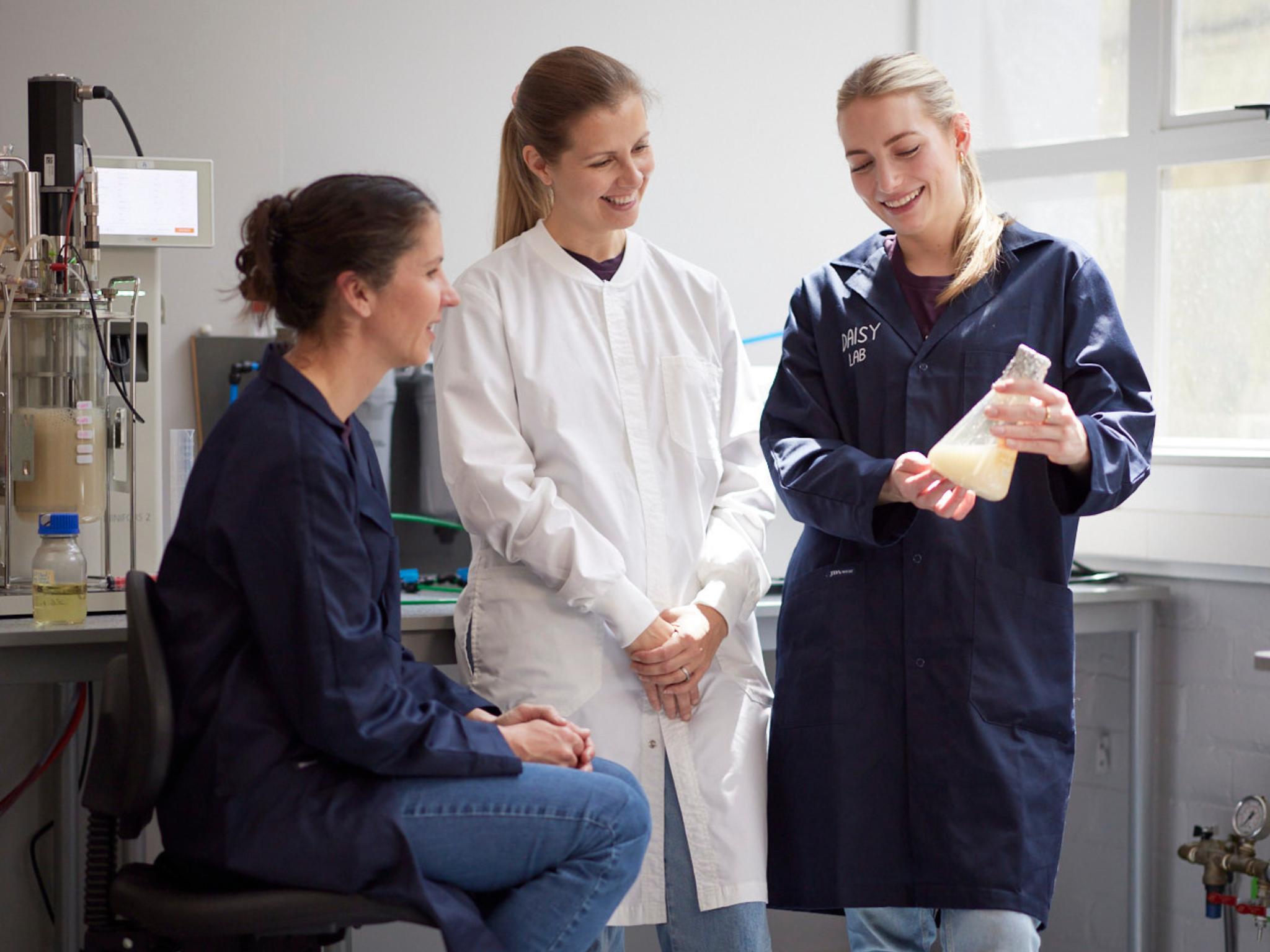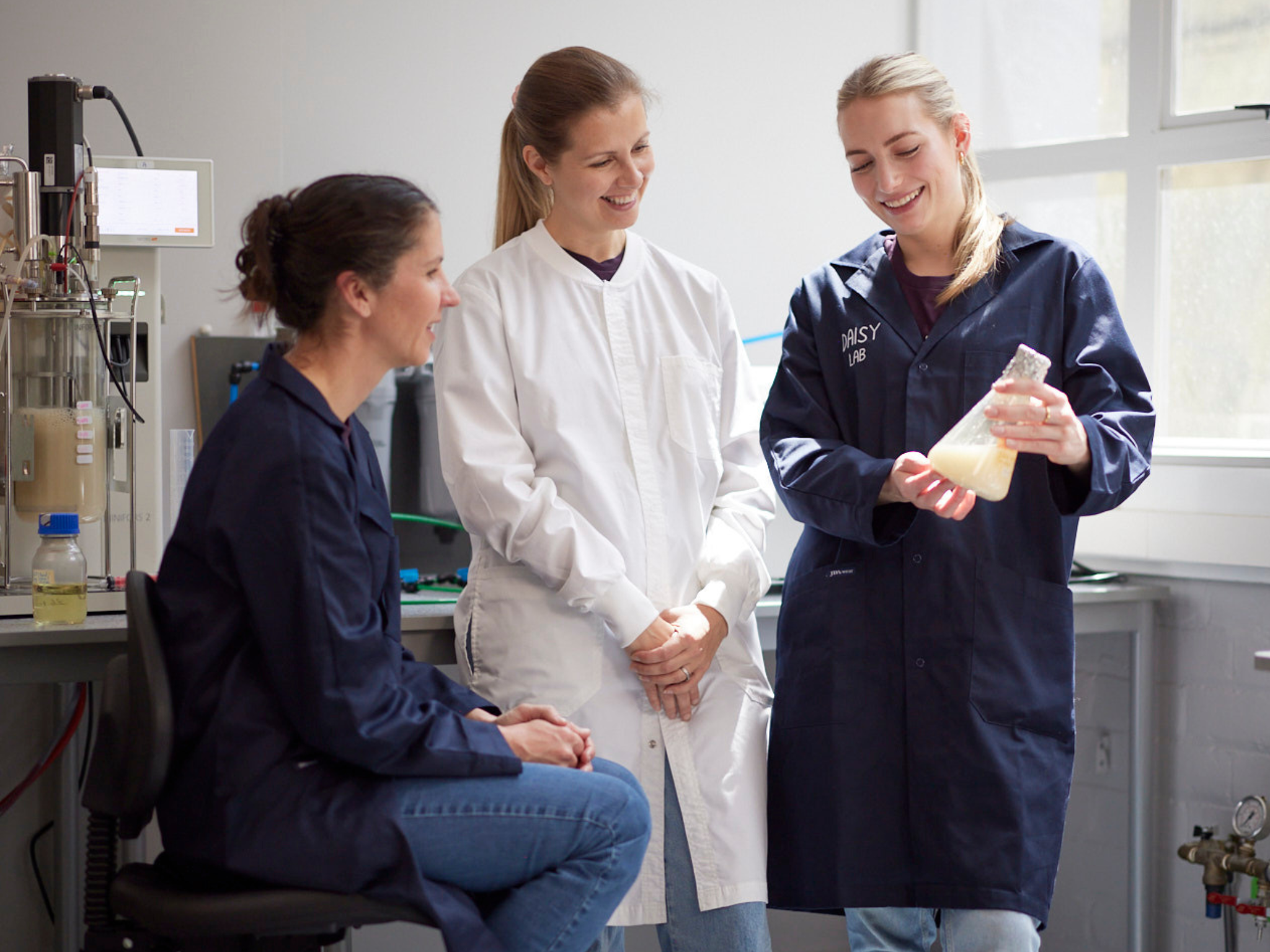New Zealand Startup Breaks Yield Records with Precision Fermentation Technology
Auckland-based food tech startup Daisy Lab has achieved a significant breakthrough in producing recombinant bovine lactoferrin through precision fermentation, surpassing the protein’s concentration in cow’s milk by more than an order of magnitude. This innovative approach allows for the production of multiple grams of lactoferrin in a yeast host, compared to the 0.02g to 0.2g per liter found in cow’s milk.

Lactoferrin, a protein found in bovine colostrum, is highly sought after for its antiviral, antibacterial, anti-carcinogenic, and immunity-boosting properties. However, its production through traditional methods is limited and expensive, requiring 10,000 liters of milk to produce just 1kg of purified lactoferrin, which can retail for $750-$1,500 per kg. Daisy Lab’s precision fermentation technology aims to address this bottleneck by eliminating the need for cow’s milk altogether.
“When scaled, the cost to produce our lactoferrin is likely to be about 10 times lower than the commodity price of lactoferrin,” said Irina Miller, co-founder and CEO of Daisy Lab. The company plans to enable the dairy industry rather than disrupt it, with talks already underway with dairy companies interested in the technology.
Diversification into Lactoferrin
Daisy Lab has been working on beta-lactoglobulin, the dominant whey protein in dairy, before pivoting to lactoferrin in early 2024. The company has scaled up its beta-lactoglobulin production to 10g per liter and plans to build a 1,000-liter demo facility after fundraising in the coming months. The decision to diversify into lactoferrin was driven by its high value and the need to prove the commercial viability of their technology.
The precision fermentation protein industry is seeing a trend of companies diversifying into recombinant lactoferrin production, with several startups working on either bovine or human lactoferrin. While Daisy Lab has made significant progress, regulatory approvals remain a crucial step, with plans largely dependent on the location of potential partners globally.


